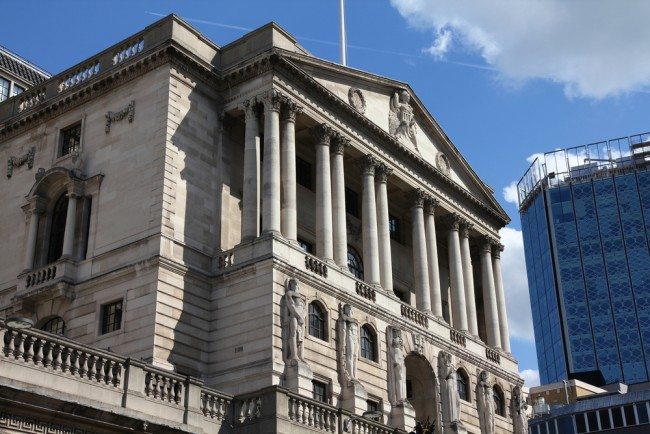The Bank of England has edged closer to its first interest rate rise in nine years after two policymakers told MPs an increase was needed soon to head off pay rise-induced inflation, reports The Guardian.
The UK is recovering in strength and is unlikely to be knocked off course by volatile global markets, the rate-setters said in an appearance at the Treasury select committee.
Ian McCafferty, one of nine members of the bank’s monetary policy committee, said the return of real wage rises this year and the prospect of higher oil prices would force Threadneedle Street to raise rates in the near future.
“Over the course of 2016 and 2017, the risks are that wages will pick up a little faster than the central forecast embedded in the August report, such that we would see a slightly greater inflation overshoot by early 2017 than the central projection in the forecast.”
McCafferty’s bullish remarks chimed with Kristin Forbes, another rate-setter, who said that there was already very little slack left in the British economy.
She said that in order to head off inflation, rates would need to increase in the not-too-distant future. Their comments indicate a shift on the MPC towards a more hawkish stance. In July, the Bank governor Mark Carney said the picture on a rate increase would only be clear enough around the end of the year. This month, McCafferty was the only one of the MPC’s nine members who voted to increase borrowing costs from their record low of 0.5 per cent.
Forbes’s colleague Martin Weale was more circumspect, however, though he said his views were similar to those of McCafferty.
Weale said he was concerned that a recent return to higher rates of productivity may prove to be “too good to be true” and could quickly revert to the lacklustre rates of last year.
He said he had also held off voting to raise interest rates because of developments in China, and that he was cautious about the chance of further economic shocks that could push down consumer price inflation, which weakened back to zero in August.
“Not only my experience of the period of above-target inflation but also more general statistical analysis suggests that apparently independent inflation shocks tend to come like buses, more than one at a time,” Weale said. “That’s not something I would necessarily give a great deal of weight to but it is something that makes me a bit more cautious.”
Carney, also appearing at the Treasury select committee, joined his colleagues in talking up the UK economy, which he said was growing above trend and was relatively immune to external shocks from emerging markets.


